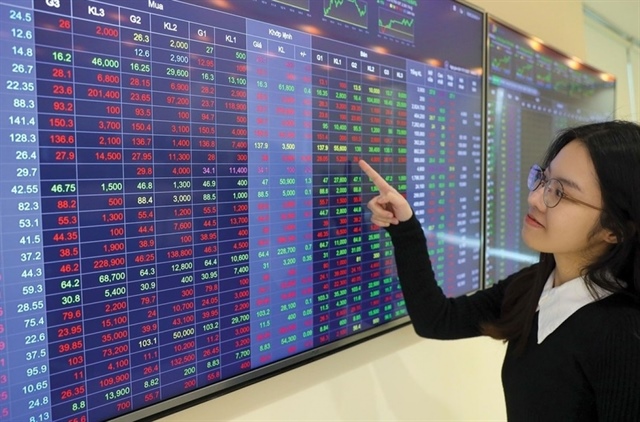Vietnam’s stock market loses $2bn in capitalization during 2016’s first six sessions
Vietnam’s stock market loses $2bn in capitalization during 2016’s first six sessions
Vietnam’s stock market saw VND46.16 trillion (US$2.05 billion) worth of capitalization vanish into thin air in the first six sessions this year.

The capitalization of the southern bourse, the Ho Chi Minh City Stock Exchange (HoSE), fell by VND39.66 trillion ($1.78 billion) against the end of 2015.
Meanwhile, that of the northern counterpart, the Hanoi Stock Exchange (HNX), dropped by VND6.5 trillion ($270 million) in comparison with the value recorded on December 31, 2015.
By the end of Monday’s session, the benchmark VN-Index of the HoSE had slipped by two points to 557 points, triggering a decline of 21 points since the beginning of 2016. Similarly, the HNX-Index plunged by nearly four points to 76 points.
There was a slight recovery on Tuesday, but the market tumbled again on Wednesday.
The trend of net selling of foreign investors continued on the HoSE, resulting in a net-selling value of VND182 billion ($8.19 million) and causing most of the large-cap stocks in the market to be in red.
The downturn of the market and the net-selling mood of foreign investors showed that there were still some risks making investors bet on cash rather than stocks, according to securities firm Vietcombank Securities Company (VCBS).
The market is facing the risk of systemic uncertainty, the VCBS said in its note sent to investors on Monday.
Such indicators as liquidity and the trading mood of foreign investors still showed a big selling pressure, the firm added.
As a result, the company recommended that its investors hold cash and not buy stocks when they continue to fall, especially when the risk in exchange rates is still there.
The State Bank of Vietnam (SBV) on January 4 set the daily central rate for the dong/dollar at VND21,896, the very first day it adopted a new management mechanism in the hope of giving more flexibility to the foreign exchange rate.
The new policy, unveiled by the central bank late last year, replaced a fixed VND-USD rate, which the SBV adjusted only occasionally in the past.
In 2015, the dong was devalued three times, each by one percent, in January, May and August. The SBV also announced two trading band adjustments in August, which collectively widened the trading band for VND-USD transactions from one percent to three percent.
All of this technically caused the Vietnamese dong to lose five percent of its value against the greenback.
The Vietnamese dong has been forecast to loss 3-5 percent in value against the greenback this year.
On the global scale, stock markets have got off to a bad start for 2016 with a sharp sell-off worldwide when investors withdrew a total of $8.8 trillion from many stock purchasing funds last week.
This recession stemmed from China at the beginning of this year, when the country’s stock market had two sessions in which the trading was suspended with a seven percent fall in total.
By the end of Monday, world stocks had continued to plunge with the red color dampening the Asian market. The Shanghai Composite Index of Chinese stocks fell by more than five percent, the lowest level in nearly four months.
Meanwhile, South Korea's Kospi lost 1.2 percent and continued to decline. In addition, the stocks of the Philippines plummeted by four percent, and the S&P / ASX 200 of Australia dropped to its lowest level of 2.5 years.




























